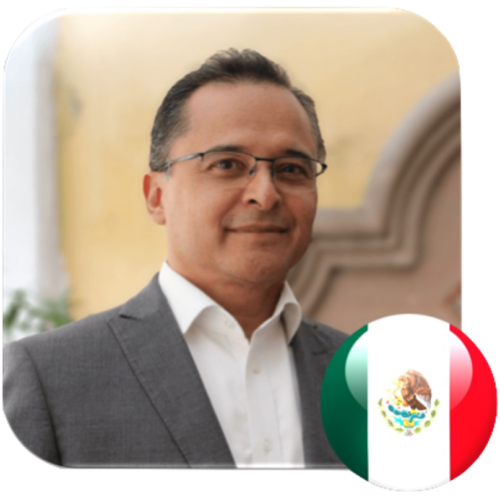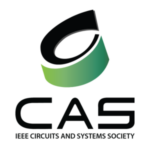TUTORIALS
On updating
INFORMATION TECHNOLOGIES MANAGEMENT AND COMPETITIVE INTELLIGENCE
Information is a vital asset for an organization, which is why we need not just business administrators, but also information administrators. These administrators must develop the capabilities to select, curate, analyze, and synthesize information using technologies that allow them to transform information into knowledge, store it, and protect it.
The processed information and knowledge should enable an organization to make decisions that provide sustainable competitive advantages, such as cost reduction, process optimization, and increased competitiveness with a human dimension. This workshop will include activities that allow participants to engage in analysis and synthesis using some of the best practices.
Competitive intelligence, on the other hand, is both tactical and strategic. For example, in the stock market, the average lifespan of 50% of companies is 5 years. Therefore, the recurring question is, «Will my company still be alive in the coming years?» We can apply these principles to the life cycles of individuals, public institutions, and private institutions.
Free Access to IEEE TEMS Members
Mg. Ignacio Castillo

Ignacio Castillo holds a Bachelor’s degree in Electronics and a Master’s degree in Computer Science specializing in Electronic Devices from the Benemérita Universidad Autónoma de Puebla. He is a research professor at the Universidad Autónoma de la Ciudad de México, where he coordinates the Advanced Networks Laboratory. Additionally, he works as a Data Centers Consultant.
He is an IEEE Senior Member and has been a Distinguished Visiting Professor of the IEEE Computer Society, as well as an IEEE Computer Society Golden Core Member. He has worked for 27 years in the computer and telecommunications industry, participating in 110 national and international projects in various roles such as team member, leader, and management positions.
TRENDS ON MICRO AND NANOELECTRONICS
Supported by

The talk starts with a short presentation of Electronics and Microelectronics evolution. Than it will be presented a set of several trends in the design of micro and nanoelectronics circuits, including architectural issues, variability and sources of variability, EDA tools, physical design issues, printability, design of transistor networks, layout strategies, regularity, 3D circuits, flexible electronics, new devices, Stretchable Silicon, Fault Tolerance, Tolerance to Radiation Effects, … It will be also discussed some trends in the design of IoT devices, where power optimisation is something more and more fundamental. The talk tries to motivate the audience to explore the upcoming challenges in the field.
Free Access to IEEE CASS Members
Dr. Ricardo Reis

Ricardo Reis received a Bachelor degree in Electrical Engineering from Federal University of Rio Grande do Sul (UFRGS), Porto Alegre, Brazil, in 1978, and a Ph.D. degree in Microelectronics from the National Polytechnic Institute of Grenoble (INPG), France, in 1983. Doctor Honoris Causa by the University of Montpellier in 2016. He is a full professor at the Informatics Institute of Federal University of Rio Grande do Sul. His main research includes physical design automation, design methodologies, fault tolerant systems and microelectronics education. He has more than 700 publications including books, journals and conference proceedings. He was vice-president of IFIP (International
Federation for Information Processing) and he was also president of the Brazilian Computer Society (two terms) and vicepresident of the Brazilian} Microelectronics Society. He is an active member of CASS and he received the 2015 IEEE
CASS Meritorious Service Award. He was vice-president of CASS for two terms (2008/2011). He is the founder of the Rio Grande do Sul CAS Chapter, which got the World CASS Chapter of The Year Award 2011, 2012, and 2018, and R9 Chapter of The Year 2013, 2014, 2016, 2017 and 2020. He is a founder of several conferences like SBCCI and LASCAS, the CASS Flagship Conference in Region 9. He was the General or Program Chair of several conferences like IEEE ISVLSI, SBCCI, IFIP VLSI-SoC, ICECS, PATMOS. Ricardo was the Chair of the IFIP/IEEE VLSI-SoC Steering Committee, vice-chair of the IFIP WG10.5 and he is Chair of IFIP TC10. He also started with the EMicro, an annually microelectronics school in South Brazil. In 2002 he received the Researcher of the Year Award in the state of Rio Grande do Sul. He is a founding member of the SBC (Brazilian Computer Society) and also founding member of SBMicro
(Brazilian Microelectronics Society). He was member of CASS DLP Program (2014/2015), and he has done more than 70 invited talks in conferences. Member of IEEE CASS BoG and IEEE CEDA BoG. Ricardo received the IFIP Fellow Award in 2021 and the ACM/ISPD Lifetime Achievement Award in 2022.
DATA ANALYTICS: EMPOWERING INSIGHTS AND INFORMED DECISION-MAKING
This tutorial explores data analytics and its role in empowering insights and informed decision-making. It covers techniques, applications, and real-world examples across industries. By the end of the tutorial, learners will gain a solid understanding of data analytics and its practical application for driving meaningful outcomes. They will be equipped with the knowledge to apply data analytics techniques in their own professional endeavors and make data-driven decisions to achieve better results. Some practical exercises will be carried out for data analysis, creating dashboards in Power BI.
Free Access to IEEE TEMS and IEEE Computer Members
Mg. Ana Rodriguez

Ana Karina Rodríguez is an Electronics Engineer from Santo Tomás University and holds a Master’s degree in Systems and Computing Engineering from the University of Los Andres. She has over 20 years of experience working on data analytics, business intelligence, and Big Data solutions. Currently, she serves as the CEO of ICUBO Solutions, a company specializing in Business Intelligence consulting.
TARIFF STRUCTURE FOR WHOLESALE AND RETAIL ENERGY MARKETS
This tutorial provides insights into tariff structures in both wholesale and retail energy markets. Participants will gain a comprehensive understanding of pricing mechanisms, cost allocation, and rate design strategies. The workshop explores how tariffs impact market dynamics and consumer behavior, offering practical knowledge for optimizing tariff models and promoting efficient energy consumption.
Ing. Raquel Ronderos

Mrs Raquel is a knowledge electrical engineering professional with 13 years of experience as consultant and engineer in Colombia. She has worked as a field engineer for the oil & gas and construction sector, as well as technical consultant for several manufactures, the las 7 years of work experience she has been a consultant for foreign and national investor in the renewable energy sector, providing this companies energy regulatory advisory, project structure according to the local requirements, energy market, PPA, Colombia market players advisory. Mrs Raquel is currently a principal consultant for ERM.
Programming air quality with Python
Air quality is an indicator that allows to evaluate the ecological situation in Colombia, through monitoring devices located throughout the national territory, which measure air quality and other climatological variables. In this tutorial you will learn how to develop a Python program to analyze air quality statistics in Colombia. To do so, we will develop an algorithm capable of creating the matrices of the DANE air quality database, which is publicly available on the web portal datos.gov.co. Finally, you will also learn how to simplify many of the functions and instructions in Python, using the pandas and matplotlib libraries.


